Denemek ALTIN - Özgür
THE ALIEN EYE
The New Yorker
|April 14, 2025
Sayaka Murata sees the ordinary world as science fiction.

One Sunday morning in May, 2023, I arrived at a literary agent’s Manhattan apartment, bearing a lemon tart, to attend a brunch in honor of the author Sayaka Murata.
I rang the doorbell. There was a long pause before anyone answered, and a longer pause before I was buzzed in. When I reached the top of the stairs, the agent, Nicole Aragi, with whom I was previously unacquainted, came to the door wearing orange plush tiger slippers.
“Elif, the brunch was yesterday,” she said. “But come in and have a cup of tea.” Aragi and her partner, the editor John Freeman, who has published Murata in both Granta and Freeman’s, ended up inviting me to join them on an afternoon outing they had planned with Murata to the Museum of Modern Art. Casting a wistful look at the lemon tart, I left the apartment and, having time on my hands, went to the midtown branch of Kinokuniya, the Japanese bookstore chain. The store had a big display of Murata’s English-language books, all translated by Ginny Tapley Takemori and published by Grove Press: the story collection “Life Ceremony,” from 2022; the darkly comic novel “Earthlings,” from 2020; and, of course, “Convenience Store Woman,” which won Japan’s prestigious Akutagawa Prize and, in 2018, became Murata’s first book to be translated into English. It has sold more than two million copies worldwide.
The book’s narrator, Keiko, is a misfit in her family and at school; she first experiences a sense of belonging at eighteen, when she gets a part-time job at a convenience store. At thirty-six, she’s still in the same job, and an identity that once seemed normal now strikes everyone as sad and weird. It’s a classic novelistic premise. It’s essentially “Don Quixote”: where Quixote lives by the code of knightly romances, Keiko lives by the convenience-store employee manual.
Bu hikaye The New Yorker dergisinin April 14, 2025 baskısından alınmıştır.
Binlerce özenle seçilmiş premium hikayeye ve 9.000'den fazla dergi ve gazeteye erişmek için Magzter GOLD'a abone olun.
Zaten abone misiniz? Oturum aç
The New Yorker'den DAHA FAZLA HİKAYE
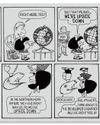
The New Yorker
THE MAGIC OF “MAFALDA”
How an Argentinean comic strip became an international phenomenon.
11 mins
July 07 - 14, 2025 (Double Issue)
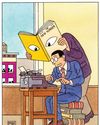
The New Yorker
BY THE BOOK
What we learn from reading the fiction touted in our début issue.
13 mins
July 07 - 14, 2025 (Double Issue)
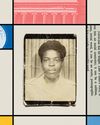
The New Yorker
THE STORY PART
Student days and a search for community.
19 mins
July 07 - 14, 2025 (Double Issue)

The New Yorker
THE SILENCE
A great silence opened up inside her. But that made it sound more dramatic than it was. It happened by degrees, creeping up slyly. And at times, in certain places and situations, it was expected and welcome—on a long walk, or when a person confessed something pitiful, or at a funeral or a party. In all those places, where once she'd had a lot to say—too much, honestly—now there was this silence and she became a far better listener. Not consciously, that was just one of the consequences. It wasn't a Zen silence or an enlightened silence or anything she'd worked to achieve. It was only a sort of blank. Once, on a mini-break, she'd spotted a sentence graffitied on a bridge in Paris: “The world is everything that is the case.” (It was written in English and stuck in her mind.) The silence felt like that: it spoke for itself. But it could also offend and disappoint others, the same way the world itself never seems enough for some people. It was no use on big family occasions, for example, or when one of her adult daughters called her name from another room, or if someone at work asked for her view on the news of the day. It could make other people feel awkward. But when she was alone with it, whenever it coincided with her own long-standing habit of looking upward into the branches of trees—then it didn't really bother her at all.
23 mins
July 07 - 14, 2025 (Double Issue)
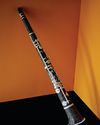
The New Yorker
THE COMEDIAN
My father worked nights as the desk attendant at a cheap hotel downtown. It was a thankless job behind bulletproof glass, which was all he had to shield him from demented drunks and screeching prostitutes, from seven in the evening until four in the morning, the poor man.
24 mins
July 07 - 14, 2025 (Double Issue)

The New Yorker
IS IT THE PHONES?
The tantalizing power of the theory that screens are harming teens.
13 mins
July 07 - 14, 2025 (Double Issue)

The New Yorker
THE END OF THE ESSAY
What comes after A.I. has destroyed college writing?
25 mins
July 07 - 14, 2025 (Double Issue)

The New Yorker
EASY MUSIC
How Elmore Leonard perfected his style.
23 mins
July 07 - 14, 2025 (Double Issue)
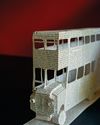
The New Yorker
JUBILEE
A wooden ruler with the etched faces of Henry VIII's six wives running down the middle; ticket stubs from Hampton Court and the Chamber of Horrors, where we walked ahead of our mothers, hand in hand; a few wrappers of Dairy Milk.
34 mins
July 07 - 14, 2025 (Double Issue)
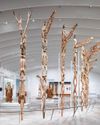
The New Yorker
PRIDE AND PROVENANCE
The Met's new Rockefeller Wing daxxles—and whispers, “Finders, keepers.”
6 mins
July 07 - 14, 2025 (Double Issue)
